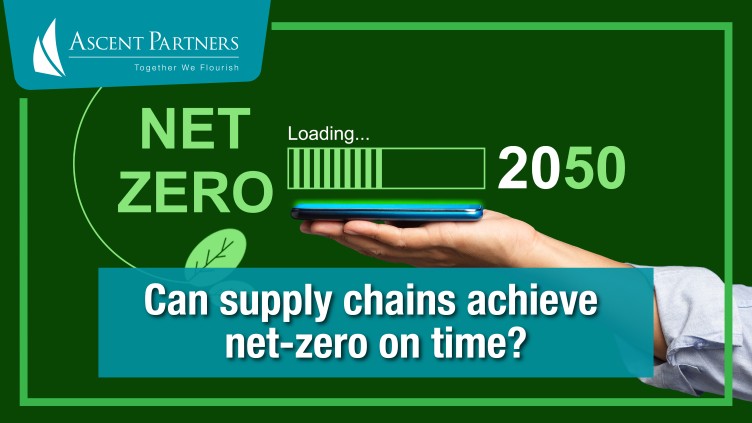
Can Supply chains achieve net-zero by 2050?
Supply chains are ever more critical to business, but can we really expect everyone to achieve net-zero by 2050?
This is the burning question. Most businesses for decades have prioritised cost optimisation over resilience, resulting in consumers demanding inexpensive, personalised and fast delivery.
The COVID-19 crisis highlighted the necessity for businesses, and their related suppliers, to build resilient supply chains to cope with the increased pressure brought on by changing consumer behaviour.
A raft of corporate net-zero commitments has largely led to rapid efforts to drive down direct Scope 1 and Scope 2 greenhouse gas emissions. But Scope 3 emissions are much more difficult to measure and quantify at present.
Panellists at this week’s Economist’s “Sustainability Week” in Singapore gave a very insightful discussion into the steps the supply chain can take to achieve net-zero by 2050.
Whilst there were several themes that were common during the 45 minute discussion, all three panellists were in total agreement about one key them – collaboration.
“Collaboration between the three sets of players: private, public and governments is critical”, Lyra Pinto, Principal Consultant Agriculture Value Chains, South Pole, told the delegates Private sector efforts alone are not enough, governments and policymakers must also buy decarbonisation efforts.
According to the World Economic Forum, much of the projected growth in global emissions is in Asia, and they reckon that highly ambitious policies could cut emissions by 70 per cent – but not to zero.
But it is not all doom and gloom. There are priorities and paths that we can take to push towards net-zero by 2050.
Again, all three panellists see light at the end of the tunnel, with technology leading the charge. Sustainable fuels, alternative propulsion systems, and electrification need to be considered from the outset, and choosing suppliers that invest in technology to scale up and become mainstream must become the norm.
And advances in technology will help with one of the biggest elephants in the room – lack of reliable, accurate data for Scope 3 emissions. The next generation of data used with AI that have the power to collectively make supply chains agile and reduce emissions – and recordable. And, according to Lyra Pinto, “paper traceability” is critical.
As ESG is constantly evolving, through regulatory, investment, technology and consumer behavior, don’t let a 70% accurate first report deter you. The data will not be perfect the first time around. Through collaboration, efficient use of new technologies, and determination, the goal of net-zero by 2050 is achievable, but we all have to come to the party sooner rather than later.
Perhaps Rashyid Redza Anwaradin, CSO of Sime Darby Plantation summed up the 45 minute discussion best when he said:
“Don’t let perfection get in the way of progress”.
